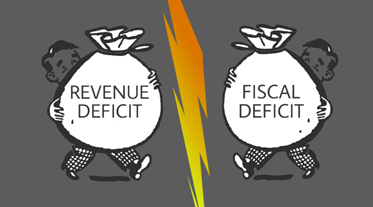Free Courses Sale ends Soon, Get It Now


Free Courses Sale ends Soon, Get It Now



Disclaimer: Copyright Infringement not intended.
Context
Revenue deficit
What is the difference between revenue deficit and fiscal deficit?
How is revenue deficit calculated?
Revenue deficit can be divided into two categories — receipt from tax (direct tax, indirect tax), and receipt from non-tax revenue.
How is revenue deficit met?
https://www.pib.gov.in/PressReleasePage.aspx?PRID=1857100
© 2024 iasgyan. All right reserved